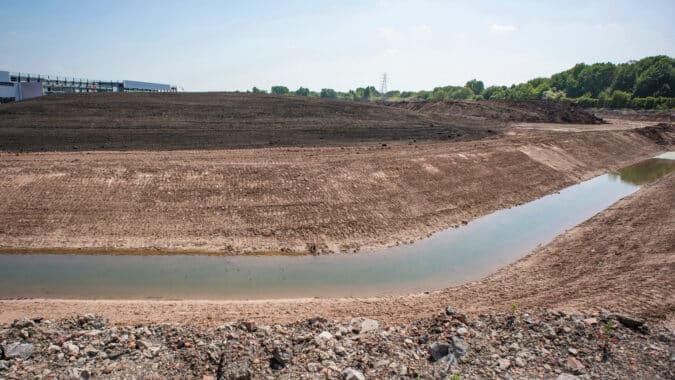Consumers who opt for electric vehicles the next time they are car shopping could be eligible for rebates up to $5,000 under legislation signed today by Gov. Phil Murphy.
The new law is aimed at making New Jersey a leader in electric vehicles (EVs). NJBIA supported the bill, S-2252 (Smith, D-17; Greenstein, D-14)/A-4819 (Benson, D-14; Pinkin, D-18), after legislators amended it to reduce costs, protect electricity ratepayers, and give the state flexibility when it comes to future policies on alternative fuels.
“Increasing the use of electric vehicles is a critical step to secure New Jersey’s clean energy future,” Murphy said at a bill signing ceremony this afternoon. “By establishing aggressive goals and strong incentives for electric vehicles, we are repositioning our economy and state for a clean future. Today, I am proudly signing bipartisan legislation that will transform New Jersey’s transportation sector and modernize our infrastructure to support our goal of reaching 100 percent clean energy by 2050.”
“Increased usage of electric cars could greatly reduce the state’s greenhouse gas emissions and improve air quality,” said Sen. Bob Smith (D-17), one of the bill’s sponsors. “This would have a major positive impact in our urban communities and along high traffic corridors, improving the quality of life for many New Jerseyans.”
NJBIA Vice President Ray Cantor said the rebates, combined with existing incentives, would give the state a leg up on the sale and use of EVs, which will cut down on air pollution and help position the state as a leader as the industry grows across the country.
“NJBIA supports electric vehicles and electrification of the transportation sector,” Cantor said. “The approach of this law will play a big role in reducing carbon emissions. The bill sponsors are to be commended for taking a reasonable approach that uses market forces rather than strict mandates that would have hurt the business community.”
Cantor said the rebate will propel expansion of the infrastructure needed to support EVs.
“As more customers start buying electric cars, you’ll see hotels, apartment buildings, and other businesses putting in vehicle chargers to make their enterprises more attractive to consumers,” Cantor added. “That’s what the market does. The rebate will drive the market.”
The vehicle rebates will equal $25 per mile of EPA-rated electric-only range up to a maximum of $5,000 per eligible vehicle. The law also provides payments of up to $500 per person for in-home charging equipment.
Additionally, the bill established several state goals, including:
- At least 330,000 of registered light duty vehicles in the state are to be plug-in electric vehicles by Dec. 31, 2025 and at least 2 million by Dec. 31, 2035;
- At least 85% of all new light duty vehicles sold in the state are to be plug-in electric vehicles by Dec. 31, 2040;
- At least 400 DC Fast Chargers to be available for public use at no fewer than 200 charging locations in the state by Dec. 31, 2025;
- At least 15% of all multifamily residential properties in the state are to be equipped with electric vehicle service equipment for the routine charging of plug-in electric vehicles by residents by Dec. 31, 2025; and
- At least 10% of new bus purchases made by NJ TRANSIT are to be zero-emission buses by Dec.31, 2024; 50% by Dec. 31, 2026; and 100% by Dec. 31, 2032.
